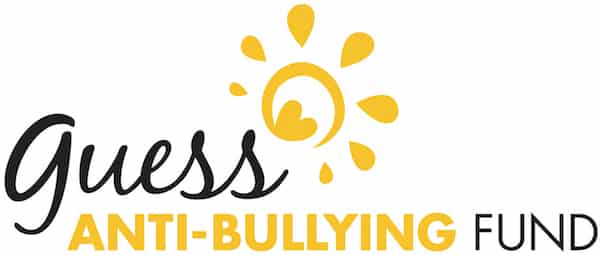It’s been 10 years since my 8-year-old daughter was bullied. We have much to celebrate these days. Morgan is no longer experiencing bullying, and she has become a national voice on the subject. And as she says, “I can stand up for myself and be myself.” She just began her freshman year at Duke University. Success. Or is it?
Not so fast. While we believe we are making progress in our effort to change a culture of violence and cruelty among our youth, we are often reminded of those early days when we felt abandoned and alone as we were fighting for her safety. We often talk about the importance of forgiveness. We also talk about how adults make mistakes and how those who bully are sometimes hurting as well. Often these are good people who have exhibited bad behavior. We don’t just say it. We believe it. And yet, we also believe it is important to never forget how the “system” failed us, so that we can help others through our lessons learned.
I will always remember how terrified I was when I learned Morgan was being bullied. I will never forget the day her pediatrician told me she was clinically depressed and that she needed to take anti-depressants. I was shocked when he suggested that we remove her from school, as he felt like she was emotionally unsafe there.
I sought help from the school, and while I think they tried to help, I learned that our schools have limited resources and tools to train teachers and administrators on how to effectively handle bullying. I also learned that the reputation of a school system can take priority over any one child. My fight to protect her made me feel like I had become the enemy.
But I did my homework. I studied the law. I spoke to law enforcement officials and searched for books and articles on the subject. I slowly discovered that Morgan and I had rights— and that once we reported bullying, we were protected against retaliation. I fought every step of the way, and I was disappointed by those who I thought would be Morgan’s advocates. I often want to tell the entire story, and yet, I sometimes still fear the retaliation that may follow. Fear is the power of a bully, whether it is felt by a child or a high-ranking school official. In spite of all of this, our focus has always been on not attacking the bully but rather focusing on how we can make a difference.
While we will never forget this painful experience, we will not let it define us. We are not victims. We are change-agents. This unfortunate experience has now made us better people and, we hope, people who can make the world better for Morgan and for other children.
We learned many lessons these past 10 years. The greatest lesson is that we now understand that we have a voice, and we can use it for good. We can make a difference. We are now focused on our interactions with other people. We work to make sure people feel good and happy when they are with us. We reach out to spread kindness, recognizing these small acts have powerful impact when they are multiplied. Our journey of bullying has brought us to a place of peace and joy, with a real sense of purpose. It is important to know that standing up for your child doesn’t make you an unkind person. Holding people accountable is your right and responsibility. We often share what we did well, what we could have done better, and how others may navigate their own way through a bullying experience.
Our tips for parents:
- Report the bullying, and do it via email. It provides a record of your complaint. It is likely school officials will not respond to you because they know that your email is a public record (if your child is in a public school), and the media can access it through open records requests. Continue the electronic communication even if they suggest otherwise.
- Meet with teachers, the principal, and/or school system officials to devise a plan to keep your child safe. Be calm. Don’t accuse. Go to the meeting with a genuine goal of working with them. Give them a chance, but insist on action. Whatever plan is agreed to, again, confirm it in writing. Set up regular meetings to assure agreed actions were taken. If school officials try to harass or intimidate your, report it in writing as well and insist that they stop.
- Do not let school officials – teachers, counselors, the principal, and school system personnel – meet with your child alone. Put it in writing and require that any meetings with your child about this subject or any other subject require the presence of a parent. If they say they have the right to do so per “in loco parentis ,” ask for the policy that gives them that authority. I would bet money there isn’t one. Just because someone says something with authority, doesn’t mean they have that authority.
- Know your rights and make sure those you are working with at school know what your rights are as well. Do the research. See if your state has an anti-bullying bill, know what it means, and use it to help your child.
- Talk to law enforcement officials. See how they can assist you and if or when the violence or threats cross a threshold where you can access the legal system. Ask if you can file a report for the purposes of expressing your concerns without filing a formal report.
- See if you have the opportunity to work with a court designated worker. Some require first that you file a formal legal complaint. They may be able to require that the bully and their family members receive counseling and/or other services that will assist the bully to change the behavior. The more complaints that are filed, the more the court can mandate intervention that may help the child change his/her behavior.
- Take your child to a pediatrician and discuss any symptoms he/she may be experiencing – stomach pain, panic attacks, headaches, etc. – and how the bullying may be affecting your child’s physical and emotional health. Be open to what is recommended. Consider counseling. Talk and listen to your child.
- 160,000 kids miss school every day because they are afraid. Kids who are in fear do not learn. Talk with the school about their responsibility to not only keep your child safe but to also work with him/her to make sure their performance isn’t affected as a result of bullying. It can mean the difference between being placed in gifted education or not. It can also make a difference in classroom placement. A commitment to this goal is important to your child’s overall success in school, and if ignored, can affect their confidence and self-esteem.
- Tell your story. Talk to the media. Use this as an opportunity to shine a light on this issue. Be positive but be honest.
- Become a positive force for change. I believe that education is the key to change, for schools, for the bully, for the community, and for us. Education lifts the veil of fear and it allows us to come together for the good of our youth. Your voice will give someone else the courage to tell their story and to ask for help.
- Keep the faith and stay on course. This is an opportunity to be your child’s advocate and to assure him/her that you will indeed protect him/her. Show your child the power of standing up for what is right.
At the end of the day, we as parents do our best to protect our children, to set a good example, and to direct their moral compass to be able to recognize what is right and wrong. Our hope is they aren’t bystanders to bullying or to life. Our message is that bad things are going to happen in life, and we can ignore it, blame others, or be a part of the solution.
Maybe my greatest lesson learned is that looking back is all right for a moment but not for the sake of judgment or for bitterness. If we could take back that experience, we would. No question. We can’t, though. So, we are focused on the takeaways and the lessons that have made us better human beings. Change does happen – one person at a time. We are only two people, but we are two people.

